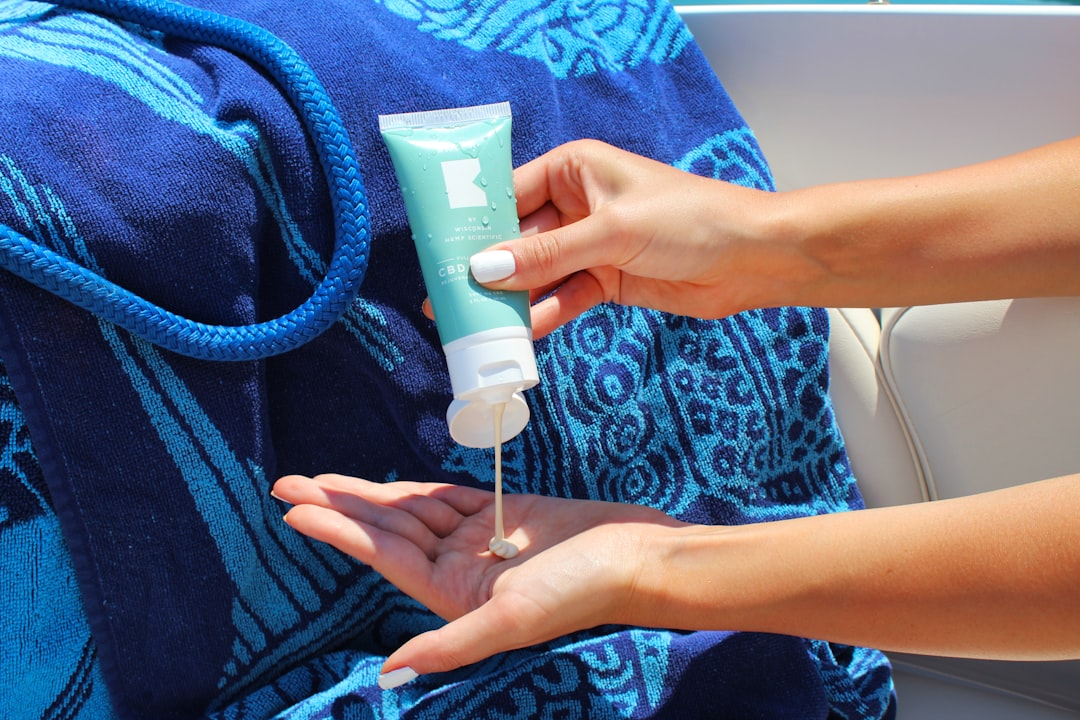When you think about your skincare routine, the last thing you want is to introduce products that could potentially harm your skin. Many skincare products on the market today contain harsh chemicals that can lead to irritation, allergic reactions, and long-term damage. Ingredients like parabens, sulfates, and artificial fragrances are often included in formulations to enhance shelf life or improve texture, but they can wreak havoc on your skin’s natural barrier.
You may find that what promises to be a miracle solution for your skin issues ends up causing more problems than it solves. It’s essential to be vigilant about reading labels and understanding what you’re putting on your skin. You might be surprised to discover that some of the most popular brands use these harsh chemicals in their formulations.
Instead of achieving that radiant glow you desire, you could end up with redness, dryness, or even breakouts. Opting for products with natural ingredients can be a safer alternative. Look for brands that prioritize transparency and use gentle, plant-based components that nourish rather than strip your skin of its natural oils.
Key Takeaways
- Skincare products with harsh chemicals can cause irritation, dryness, and long-term damage to the skin.
- Exfoliating scrubs and brushes can lead to micro-tears in the skin and worsen conditions like acne and rosacea if used too aggressively.
- Sunscreen with chemical filters may cause allergic reactions and hormone disruption, opt for mineral-based sunscreens instead.
- Fragranced lotions and creams can lead to skin irritation and allergic reactions, especially for those with sensitive skin.
- Makeup with synthetic ingredients can clog pores and cause breakouts, opt for non-comedogenic and natural options.
Exfoliating Scrubs and Brushes
Exfoliation is a crucial step in any skincare routine, but the method you choose can make all the difference. While exfoliating scrubs and brushes promise to slough away dead skin cells and reveal a brighter complexion, they can also be overly abrasive. If you’re not careful, you might find yourself damaging your skin instead of rejuvenating it.
Physical exfoliants, especially those with large granules or rough textures, can create micro-tears in your skin, leading to irritation and sensitivity. Instead of relying solely on scrubs or brushes, consider incorporating gentler alternatives into your routine. Chemical exfoliants, such as alpha-hydroxy acids (AHAs) and beta-hydroxy acids (BHAs), can provide effective exfoliation without the risk of physical damage.
These ingredients work by dissolving the bonds that hold dead skin cells together, allowing for a smoother and more even complexion. By choosing the right exfoliation method, you can achieve the fresh, glowing skin you desire without compromising its health.
Sunscreen with Chemical Filters
Protecting your skin from harmful UV rays is non-negotiable, but not all sunscreens are created equal. Many conventional sunscreens contain chemical filters like oxybenzone and octinoxate, which can absorb UV radiation but may also pose risks to your health and the environment. If you’re not careful, you could be applying products that disrupt hormone levels or contribute to coral reef bleaching when washed off in the ocean.
These physical blockers sit on top of the skin and reflect UV rays away, providing broad-spectrum protection without the potential side effects associated with chemical filters. When choosing a sunscreen, look for one that is labeled “broad-spectrum” and has an SPF of at least 30 for optimal protection. By making this switch, you can enjoy the sun safely while keeping your skin healthy.
Fragranced Lotions and Creams
| Product | Brand | Price | Size | Ingredients |
|---|---|---|---|---|
| Fragranced Lotion | Johnson & Johnson | 10.99 | 250ml | Water, Glycerin, Fragrance, etc. |
| Fragranced Cream | Nivea | 8.50 | 200ml | Shea Butter, Almond Oil, Fragrance, etc. |
The allure of beautifully scented lotions and creams can be hard to resist. However, many of these products contain synthetic fragrances that can lead to skin irritation and allergic reactions. If you have sensitive skin or conditions like eczema or rosacea, using fragranced products may exacerbate your symptoms.
You might find that what initially feels luxurious turns into a source of discomfort. Instead of opting for heavily scented products, consider using fragrance-free or naturally scented alternatives. Many brands now offer lotions and creams infused with essential oils or botanical extracts that provide a pleasant aroma without the risk of irritation.
These options not only nourish your skin but also create a calming experience during application. By being mindful of the fragrances in your skincare products, you can maintain healthy skin while still enjoying a delightful sensory experience.
Makeup with Synthetic Ingredients
Makeup can be a fun way to express yourself and enhance your features, but it’s essential to be aware of what’s in the products you’re using. Many makeup items contain synthetic ingredients that may not only irritate your skin but could also contribute to long-term health issues. Ingredients like talc, parabens, and artificial dyes are commonly found in cosmetics and can lead to clogged pores or allergic reactions.
To ensure that your makeup routine is as safe as it is enjoyable, consider exploring brands that prioritize clean beauty. These companies often use natural ingredients that are less likely to cause irritation while still providing excellent coverage and pigmentation. Additionally, look for makeup products that are non-comedogenic, meaning they won’t clog your pores.
By making informed choices about your makeup, you can enhance your beauty without compromising your skin’s health.
Hair Removal Creams and Waxing
Hair removal is a personal choice for many individuals, but the methods you choose can significantly impact your skin’s health. Hair removal creams often contain harsh chemicals like calcium thioglycolate or potassium thioglycolate that dissolve hair but can also lead to chemical burns or allergic reactions if not used correctly. If you’re not cautious, you might find yourself dealing with redness or irritation after using these products.
Waxing is another popular method for hair removal; however, it can also cause discomfort and irritation, especially for those with sensitive skin. The heat from the wax can lead to inflammation, while the pulling action may result in ingrown hairs or even bruising. If you prefer waxing, consider seeking professional services where trained estheticians can minimize risks and ensure a smoother experience.
Alternatively, explore gentler hair removal options like sugaring or laser treatments that may be less irritating for your skin.
Acne Treatments with Benzoyl Peroxide or Salicylic Acid
Acne is a common concern for many people, leading them to seek out treatments containing benzoyl peroxide or salicylic acid. While these ingredients can be effective in treating breakouts by reducing inflammation and unclogging pores, they can also be overly drying or irritating for some individuals. If you’re not careful, you might find yourself dealing with redness or peeling skin as a result of overuse.
Look for products that contain lower concentrations of benzoyl peroxide or salicylic acid, or explore natural remedies like tea tree oil or witch hazel that may provide similar benefits without the harsh side effects. By being mindful of how you treat your acne, you can work towards clearer skin while maintaining its overall health.
Anti-Aging Products with Retinoids
The quest for youthful skin often leads many individuals to incorporate anti-aging products containing retinoids into their routines. While retinoids are known for their ability to reduce fine lines and improve skin texture, they can also cause irritation and sensitivity if not used correctly. If you’re new to retinoids, you might experience redness or peeling as your skin adjusts to these potent ingredients.
To minimize potential side effects while still reaping the benefits of retinoids, start with a lower concentration and gradually increase usage as your skin becomes accustomed to it. Additionally, consider using retinoids in conjunction with hydrating serums or moisturizers to help counteract dryness. By taking a cautious approach to incorporating retinoids into your skincare routine, you can effectively combat signs of aging while keeping your skin healthy and balanced.
In conclusion, being mindful of the products you use on your skin is essential for maintaining its health and appearance. By avoiding harsh chemicals and opting for gentler alternatives across various categories—from skincare to makeup—you can create a routine that nourishes rather than harms your skin. Remember that what works for one person may not work for another; therefore, it’s crucial to listen to your skin’s needs and make informed choices tailored to its unique requirements.
After getting laser hair removal, it is important to know what products to avoid in order to prevent any adverse reactions. One related article that provides helpful information on this topic can be found at this link. This article discusses the importance of avoiding certain products after laser hair removal to ensure the best results and minimize any potential risks. It is always recommended to follow the advice of professionals and take proper care of your skin post-treatment.
FAQs
What products should be avoided after laser treatment?
After laser treatment, it is important to avoid products that can irritate or damage the skin. This includes products containing harsh chemicals, fragrances, or exfoliating ingredients.
Why should certain products be avoided after laser treatment?
Laser treatment can leave the skin sensitive and vulnerable to irritation. Using the wrong products can lead to inflammation, redness, or even damage to the skin.
Which specific ingredients should be avoided after laser treatment?
Ingredients to avoid after laser treatment include retinoids, alpha hydroxy acids (AHAs), beta hydroxy acids (BHAs), alcohol-based products, and products with strong fragrances.
What are some alternative products that can be used after laser treatment?
After laser treatment, it is best to use gentle, hydrating, and soothing products. This may include gentle cleansers, fragrance-free moisturizers, and products containing soothing ingredients like aloe vera or chamomile.
How long should one avoid certain products after laser treatment?
The length of time to avoid certain products after laser treatment can vary depending on the type of laser treatment and the individual’s skin sensitivity. It is best to follow the specific post-treatment instructions provided by the dermatologist or skincare professional.







